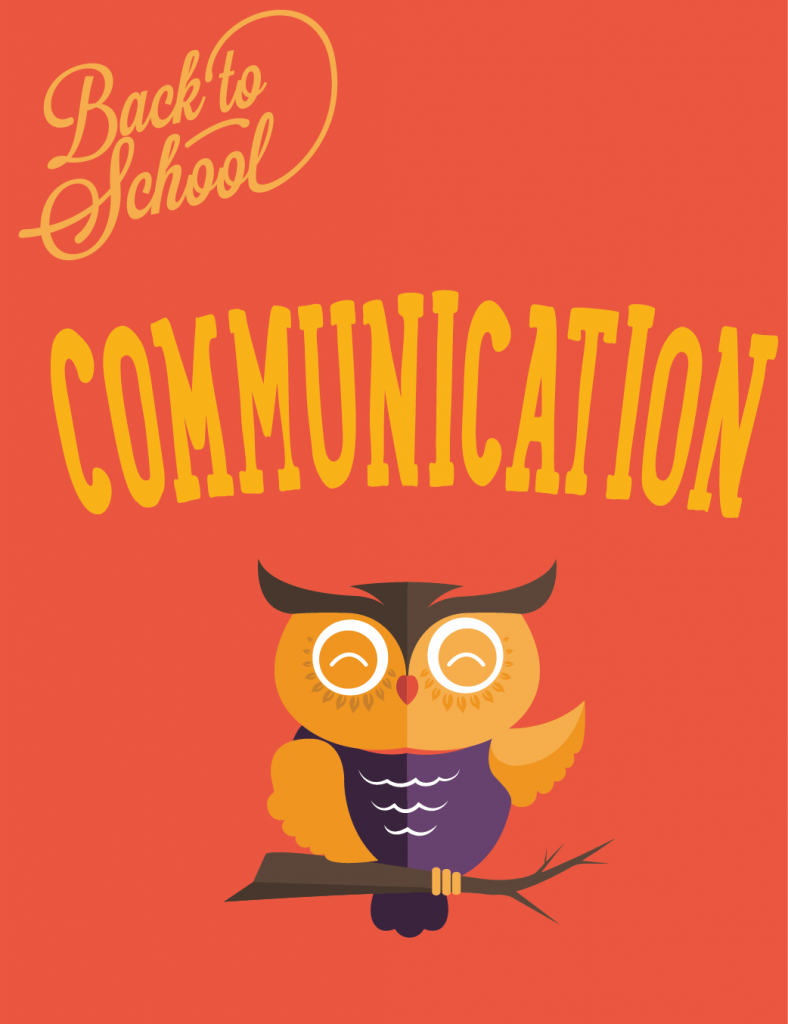The beginning of a new school year is a very exciting time for parents and students alike. However, after the school supply list has been checked off and the lunches have been planned, there are still things that all parents and guardians can do to ease the emotional component of the transition back to school.
Strategies For The First Month of School
COMMUNICATE
Establish communication with your child’s teacher from the start.
- If you know of any behavioural problems, give your child’s teacher notice through a brief letter that you send your child to school with, outlining what your child responds well to and what your child does not respond well to in order to ensure that they start off on the right foot.
- At some point during the first couple of weeks, introduce yourself to your child’s teacher. Specify any of your child’s unique needs, and inform them of any specific details like if your child has an Individualized Education Plan (IEP).
- Inform your child’s teacher that you would be interested in regular feedback on your child’s learning and their advice on what you can do to facilitate growth. Make note of a class website, the teacher’s e-mail address and phone number, as well as his or her preferences regarding communication. Take advantage of opportunities like back-to-school night.
Have a clear line of communication with your child. Do not share your own concerns about back to school with your child. Instead, speak with your child about his or her day.
- Ask questions—the right questions. Open ended questions will give your child an opportunity to speak to you without the implications of questions like “Did you make any friends?” which can be shame-inducing on a poor day at school. Questions like “How was your day?” or “What did you like about school today?” are better suited to start discussions.
LEARN TOGETHER
- Review school materials with your child. Share enthusiasm about the subject matter they will be exploring during the year. Remind your child of your confidence in him or her to develop new skills and reinforce pre-existing strengths through learning. Be open about the need to be patient and optimistic throughout the learning process.
Decreasing Anxiety and Increasing Self-Esteem
STAY POSITIVE
Focusing on the positive is especially important during the first days of school in order to avoid overreacting. Separation anxiety amongst young children is not abnormal as is a tendency to be shy during the initial return to school.
- Focusing on the positive aspects of school can be particularly useful if your child has anxiety about a poor experience they had during the last school year. This is a concern that should be shared with the school early on. Reassure your child that this year is brand new, and that you are working with the school to ensure a better year.
Do not let the transitional phase overwhelm you or cause you to overreact. It often does not take more than some time and patience for children to adapt themselves back into the school environment and schedule.
- Reassure your child during this time that you are always a safe place to turn—an uplifting note in their lunch bag can be a good reminder of this.
- Prepare your child with some problem-solving strategies to use, but mention that teachers are also a resource for problems they have not been able to solve independently.
Returning to school presents every child with challenges, but this time of year can be especially difficult for children with learning disabilities as well as those with social, emotional or behavioural problems. However, letting yourself and your child focus on the positive is often the best first step.
- Remind your child that a return to school also means making new friends, and learning new things. Encourage your child to view her teacher in a positive way and as a trustworthy resource. Children with ADHD or dyslexia might find it useful to have explained the idea that teachers are more than controlling, authoritative figures.
- Teach your child about any of his or her own unique learning needs. If your child has attention deficit disorder (ADD), knowing about the correlation between those with ADD and creativity can help to minimize the effects of low self-esteem.
SHOW
Be a role model for your child. Show your child that you have a calm and collected attitude toward back to school preparation, and your child is far more likely to have the same. This is particularly important to remember for parents and guardians who have anxiety as children are inclined to model these behaviours.
Resources for Preparing for Yearlong Success
AVOID COMPARISON
All children have different strengths and weaknesses which means that comparing your child’s progress to that of other children’s is not an accurate indication of a problem. Instead…
BE PROACTIVE
- There are resources in and outside of school that can put anxieties about your child at bay.
- Outside of teachers and school administration, psychologists can also act as a resource for answering any of the questions that you or your child may have.
- Access these resources early instead of allowing your own anxieties to grow. If you are concerned by your child’s struggles—emotional or otherwise—seek help promptly.
- Having your child tested can help her understand her strengths and weaknesses, and help you understand how best to facilitate your child’s learning experience in consideration of particular learning styles and unique learning needs.
Back to school can be a stressful time for students and parents alike, but knowing that there are resources available can create a positive learning experience that lasts until June.


